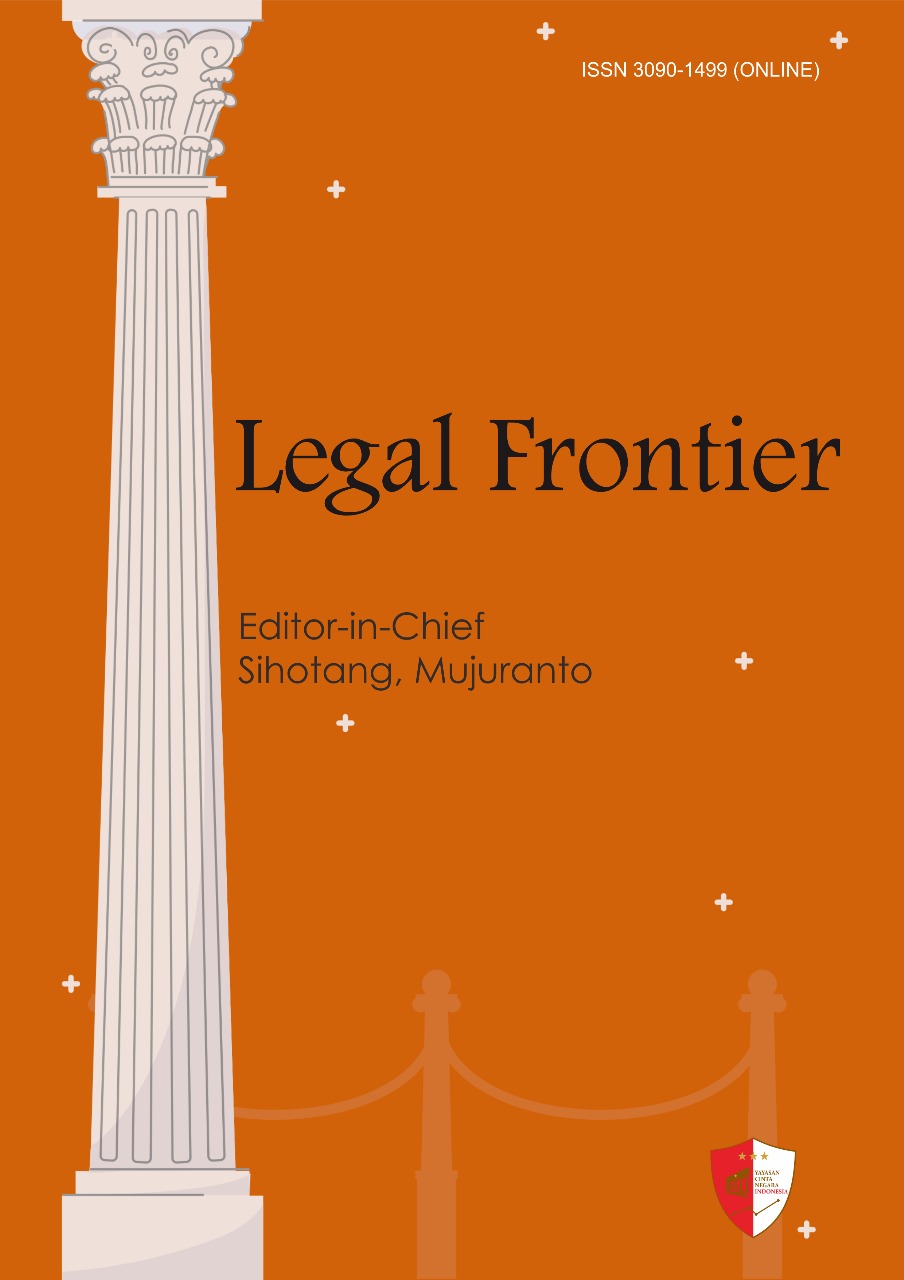The Position of Women in the Islamic Legal Inheritance System in Indonesia
Keywords:
Indonesia, Inheritance, Islamic Law, Legal SystemAbstract
This study examines the position of women in the Islamic legal inheritance system as applied in Indonesia, a country where Islamic law, national law, and local customs coexist within a pluralistic legal framework. The research aims to analyze the extent to which Islamic inheritance law, particularly as codified in the Compilation of Islamic Law (Kompilasi Hukum Islam), recognizes and protects women's rights to inheritance, while also addressing the social and cultural challenges that affect its implementation. Although Islamic law grants women specific shares in inheritance such as one-half or one-third depending on their relationship to the deceased its practical enforcement is often hindered by patriarchal interpretations, customary practices (adat), and limited legal awareness among the Muslim population. Using a normative-juridical method, this study evaluates primary legal sources, including the Qur’an, Hadith, the Compilation of Islamic Law, and relevant court decisions. The research also explores the tension between religious doctrine and societal norms that tend to marginalize women from their rightful inheritance. Findings suggest that while the Islamic legal system in Indonesia formally acknowledges women's inheritance rights, cultural resistance and legal ambiguities frequently undermine their realization. Furthermore, there remains a significant gap between legal theory and practice, especially in rural communities. The study recommends strengthening legal education, judicial consistency, and public awareness to ensure that women's inheritance rights are upheld in accordance with Islamic principles of justice and equity. This research contributes to the broader discourse on gender justice within Islamic jurisprudence and the ongoing efforts to harmonize religious law with human rights standards in Indonesia
References
Abdurrahman. (2007). Kompendium Hukum Islam. Jakarta: Akademika Pressindo.
Ali, M. Daud. (2000). Hukum Islam: Pengantar Ilmu Hukum dan Tata Hukum Islam di Indonesia. Jakarta: Rajawali Press.
Amiruddin, & Zainal Asikin. (2015). Pengantar Metode Penelitian Hukum. Jakarta: RajaGrafindo Persada.
Asy-Syahrastani, Al. (2007). Al-Milal wa al-Nihal. Beirut: Dar al-Fikr.
Auda, Jasser. (2008). Maqasid al-Shariah as Philosophy of Islamic Law. London: IIIT.
Azra, Azyumardi. (2002). Paradigma Baru Pendidikan Nasional. Jakarta: Kompas.
Badan Litbang dan Diklat Kemenag RI. (2019). Panduan Praktis Kompilasi Hukum Islam. Jakarta: Kemenag RI.
Cammack, M. (2007). "Legal Pluralism and Islamic Law in Indonesia." Indonesia Law Review, 3(1), 1–24.
Darraz, M. A. (1991). Al-Maqasid al-Shar’iyyah al-Islamiyyah. Cairo: Dar al-Nahda.
Departemen Agama RI. (1994). Al-Qur’an dan Terjemahannya. Jakarta: Departemen Agama RI.
Departemen Agama RI. (2006). Kompilasi Hukum Islam. Jakarta: Direktorat Jenderal Bimbingan Masyarakat Islam.
Effendi, Bahtiar. (2001). Islam dan Negara: Transformasi Pemikiran dan Praktik Politik Islam di Indonesia. Jakarta: Paramadina.
Fakih, Mansour. (1996). Analisis Gender dan Transformasi Sosial. Yogyakarta: Pustaka Pelajar.
Ghazali, Imam al-. (2002). Ihya' Ulumuddin. Beirut: Dar al-Kutub al-Ilmiyyah.
Hamim, Syafiq. (2004). Gender dalam Perspektif Islam. Jakarta: LKiS.
Hasan, Noorhaidi. (2009). Islamising Formal Law in Indonesia: The Case of the Compilation of Islamic Law. Journal of Islamic Studies, 20(3), 415–436.
Hasbi Ash-Shiddieqy, T.M. (1997). Pengantar Hukum Islam. Jakarta: Bulan Bintang.
Ibrahim, Jaih Mubarok. (2011). Hukum Waris Islam. Bandung: Pustaka Setia.
Ismail, Faisal. (2003). Islam dan Hak Asasi Manusia. Jakarta: Mizan.
Kamali, Mohammad Hashim. (2008). Principles of Islamic Jurisprudence. Kuala Lumpur: Ilmiah Publishers.
Karim, Abdul Ghofur. (2016). Hukum Waris Islam Perspektif Gender. Yogyakarta: UII Press.
Khalaf, Abd Wahhab. (1994). Ilmu Ushul Fiqh. Jakarta: Bulan Bintang.
Lubis, Mochtar. (1983). Manusia Indonesia. Jakarta: LP3ES.
Madjid, Nurcholish. (2002). Islam Doktrin dan Peradaban. Jakarta: Paramadina.
Mahmud, Saiful. (2012). Hukum Islam Indonesia dalam Bingkai Politik Hukum Nasional. Yogyakarta: Pustaka Pelajar.
Manan, Abdul. (2006). Penerapan Hukum Acara Perdata di Lingkungan Peradilan Agama. Jakarta: Kencana.
Mudzhar, M. Atho. (1993). Fatwas of the Council of Indonesian Ulama. Jakarta: INIS.
Musdah Mulia. (2004). Islam Menggugat Poligami. Jakarta: KPG.
Quraish Shihab, M. (2006). Wawasan al-Qur’an: Tafsir Maudhu’i atas Pelbagai Persoalan Umat. Bandung: Mizan.
Rahman, Fazlur. (1982). Islam and Modernity: Transformation of an Intellectual Tradition. Chicago: University of Chicago Press.
Rahman, Fazlur. (1996). Major Themes of the Qur'an. Minneapolis: Bibliotheca Islamica.
Rasyid, Harun Nasution. (1986). Islam Ditinjau dari Berbagai Aspeknya. Jakarta: UI Press.
Saifuddin, Ahmad. (2018). Gender dan Hukum Islam: Studi Kritis atas KHI. Semarang: RaSAIL Media Group.
Schacht, Joseph. (1982). An Introduction to Islamic Law. Oxford: Clarendon Press.
Zuhairi, Ahmad. (2010). Perempuan dalam Hukum Waris Islam. Jakarta: Kencana.
Downloads
Published
Issue
Section
License
Copyright (c) 2025 Muhammadong (Author)

This work is licensed under a Creative Commons Attribution-NonCommercial 4.0 International License.






